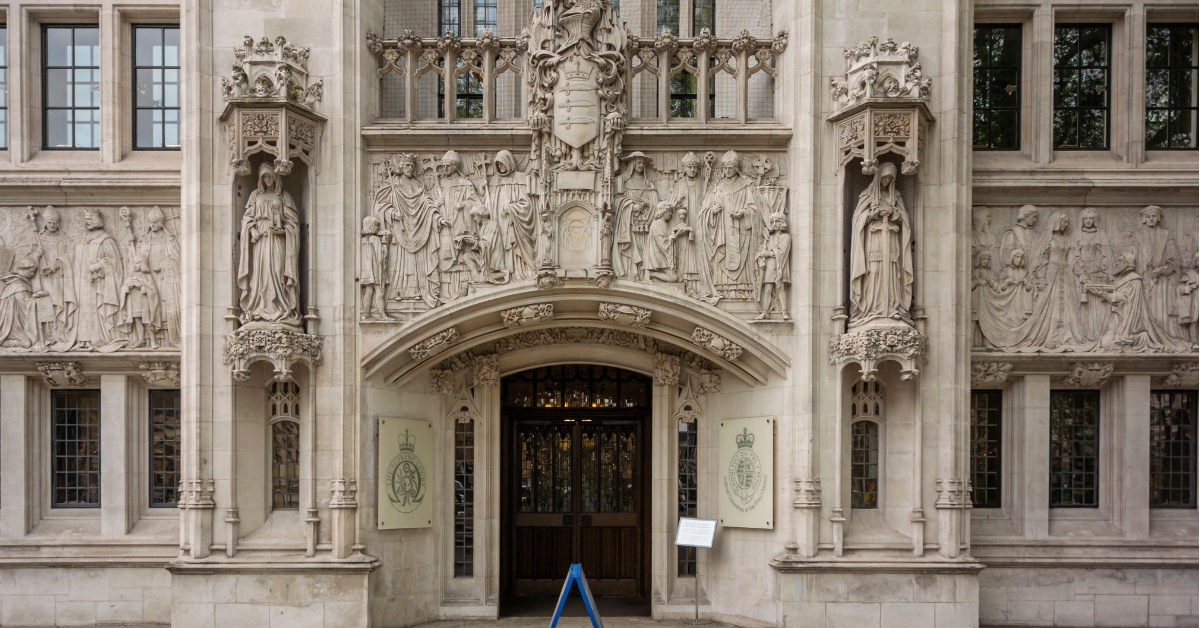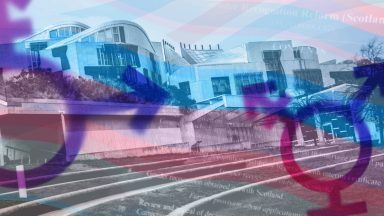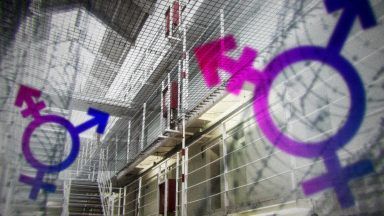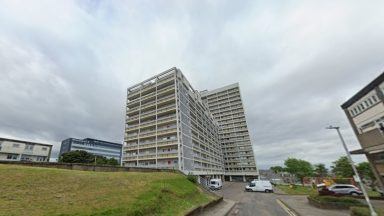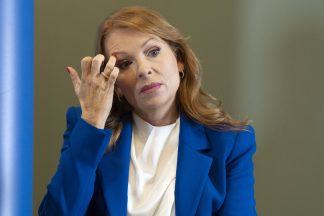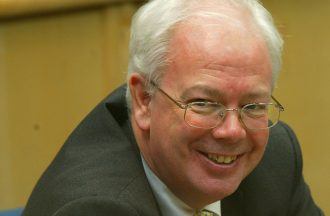The terms “woman” and “sex” legally refer to biological woman and biological sex, according to a UK Supreme Court decision handed down on Wednesday.
The landmark ruling determined that somebody with a gender recognition certificate (GRC) cannot be legally recognised as a woman for the purposes of the 2010 Equality Act – going against Scottish Government guidance.
The highest court in the land published an 88-page decision laying out the judges’ reasoning. Here STV News breaks down what it means.
What does ‘woman’ mean?
The judgment follows a lengthy legal challenge by women’s rights campaigners who challenged the Scottish Government’s interpretation of anti-discrimination legislation which applies to England, Scotland and Wales.
On one side, women’s campaign groups believe “woman” means being born a biological female.
On the other side, Scottish Government guidance said that “woman” should include both biological women and trans women with a gender recognition certificate (GRC).
The Supreme Court unanimously found that a trans person with a GRC “does not come within the definition of ‘woman’ for the purposes of sex discrimination” in the 2010 Equality Act.
“That in turn means that the definition of “woman” is limited to biological women and does not include trans women with a GRC,” the ruling stated.
However, judges were clear that the ruling should not bar or discourage trans women or trans people from being appointed to public boards.
“The issue here is only whether the appointment of a trans woman who has a GRC counts as the appointment of a woman and so counts towards achieving the goal set in the gender representation objective, namely that the board has 50% of non-executive members who are women,” the ruling explained.
“In our judgment, it does not.”
Nine ‘principal elements of reasoning’
Lord Hodge set out the nine “principal elements” of the court’s reasoning when he read out the judgment on Wednesday. In full, they are:
- The 2010 Equality Act provides group-based protections against discrimination based on sex and gender reassignment
- It must be interpreted in a “clear and consistent way” so employers and public bodies can identify these groups
- Accepting the Scottish Government’s definition of sex would “cut across the definitions of ‘man’ and ‘woman’” and the protected characteristics of it. Lord Hodge said it would essentially undermine single-sex groupings
- Protections against sex discrimination, pregnancy and maternity can “only be interpreted as referring to biological sex”
- The court rejected the suggestion that sex could refer to only biological women for pregnancy and maternity while including trans women with a GRC elsewhere – “This undermines the coherence of the statute”
- Scottish Government guidance would create “two sub-groups” and give “trans persons who possess a GRC greater rights than those who do not”
- Holyrood’s guidance would also “seriously weaken” the protections given to lesbians to have lesbian-only spaces and associations
- The Equality Act will function properly “only if sex is interpreted as biological sex” for separate spaces and single-sex, including changing rooms, hostels and medical services, communal accommodation and others
- “Similar incoherence and impracticability” also arises from Holyrood’s interpretation for “single-sex characteristic associations and charities, women’s fair participation in sport, the operation of the public sector equality duty, and the armed forces”
Scottish Government guidance would give trans people with a GRC ‘greater rights’ than those who don’t
To come to a decision on whether the appointment of a trans woman to a public board would count towards gender representation objectives, the court had to consider the meaning of “man” and “woman” more generally.
The court found that the Scottish Government’s interpretation of gender and sex would “create two sub-groups within those who share the protected characteristic of gender reassignment, giving trans persons who possess a GRC greater rights than those who do not”.
“That interpretation would also seriously weaken the protections given to those with the protected characteristic of sexual orientation for example by interfering with their ability to have lesbian-only spaces and associations,” the ruling said.
How will it impact trans people?
The judgment was only intended to determine whether the appointment of a trans woman who has a GRC counts towards government gender representation objectives, but it could have far-reaching consequences.
For example, it could impact trans people’s ability to access women’s only spaces like changing rooms, homeless hostels, segregated swimming areas, medical or counselling services provided only to women (or men), rape or domestic violence counselling, domestic violence refuges, rape crisis centres, female-only hospital wards and changing rooms.
It could also have implications for trans athletes.
The court said that a biological definition of sex would mean that a women’s boxing competition organiser “could refuse to admit all men, including trans women regardless of their GRC status”.
This would be covered by the sex discrimination exception in the Equality Act.
However, if organisers excluded trans men who have taken testosterone, their exclusion “would amount to gender reassignment discrimination, not sex discrimination, but would be permitted”.
Scottish Trans, a gender identity and gender reassignment equality and rights group, said they will be “reading the judgement as quickly as possible so we can properly understand what the Court has decided”.
“We’d urge people not to panic – there will be lots of commentary coming out quickly that is likely to deliberately overstate the impact that this decision is going to have on all trans people’s lives,” the group said on Facebook.
“We’ll say more as soon as we’re able to. Please look out for yourselves and each other today.”
NHS Fife employment tribunal
It could also impact the outcome of the NHS Fife employment tribunal about a transgender doctor using a female changing room.
The tribunal case has been brought forward by nurse Sandie Peggie, who was suspended after objecting to sharing a changing room with trans doctor Beth Upton at the Victoria Hospital in Kirkcaldy, Fife, where they both worked.
Ms Peggie lodged a complaint of sexual harassment or harassment related to a protected belief under Section 26 of the Equality Act 2010 regarding three incidents when they shared a changing room: indirect harassment, victimisation, and whistleblowing.
Ms Peggie was suspended from her work on January 3, 2024, after Dr Upton made an allegation of bullying and harassment, the tribunal was told.
Hearings for this tribunal will restart in July after judges have time to digest the Supreme Court ruling on Wednesday.
Follow STV News on WhatsApp
Scan the QR code on your mobile device for all the latest news from around the country


